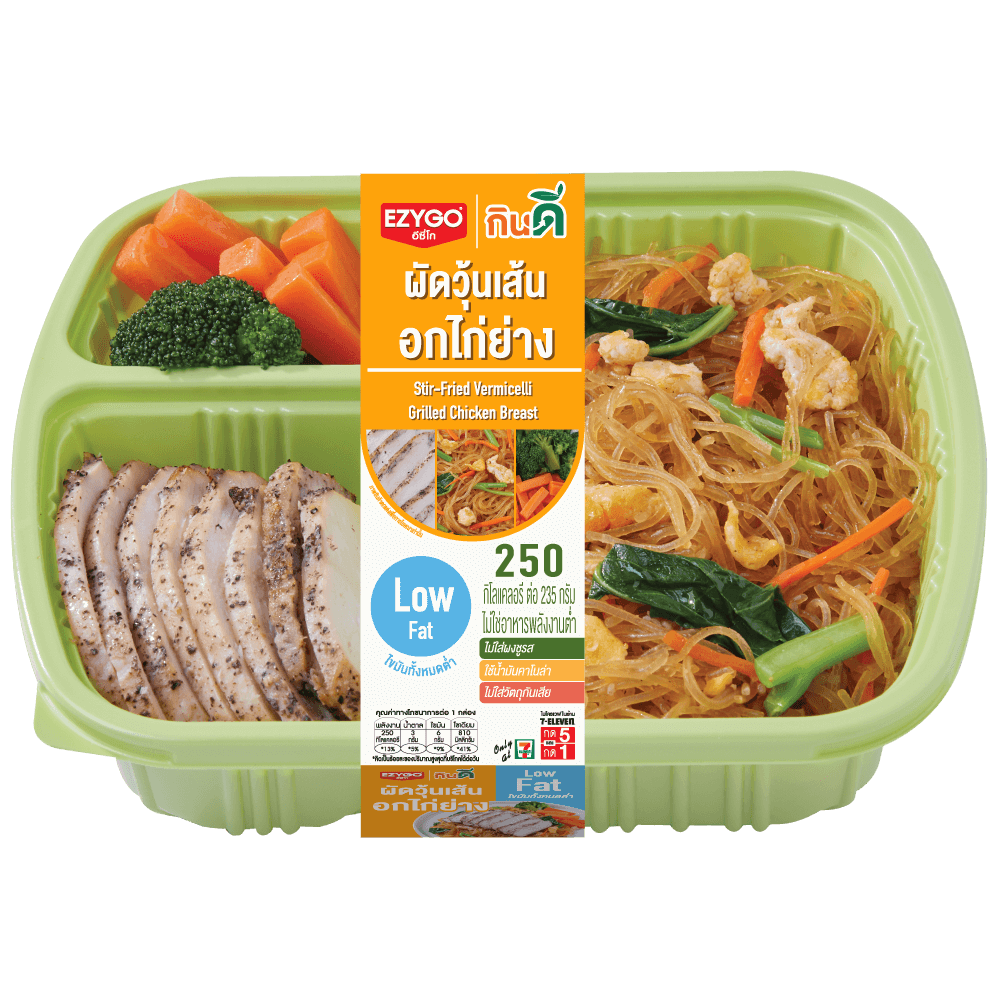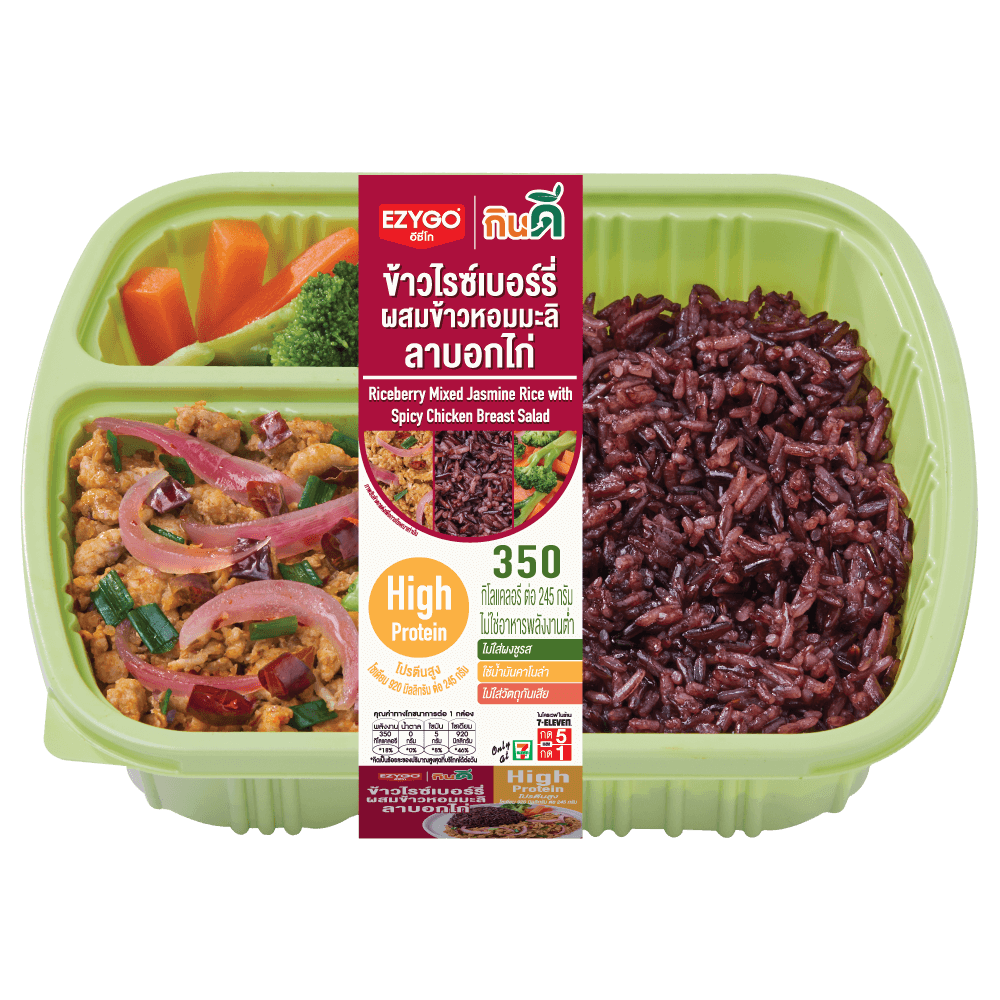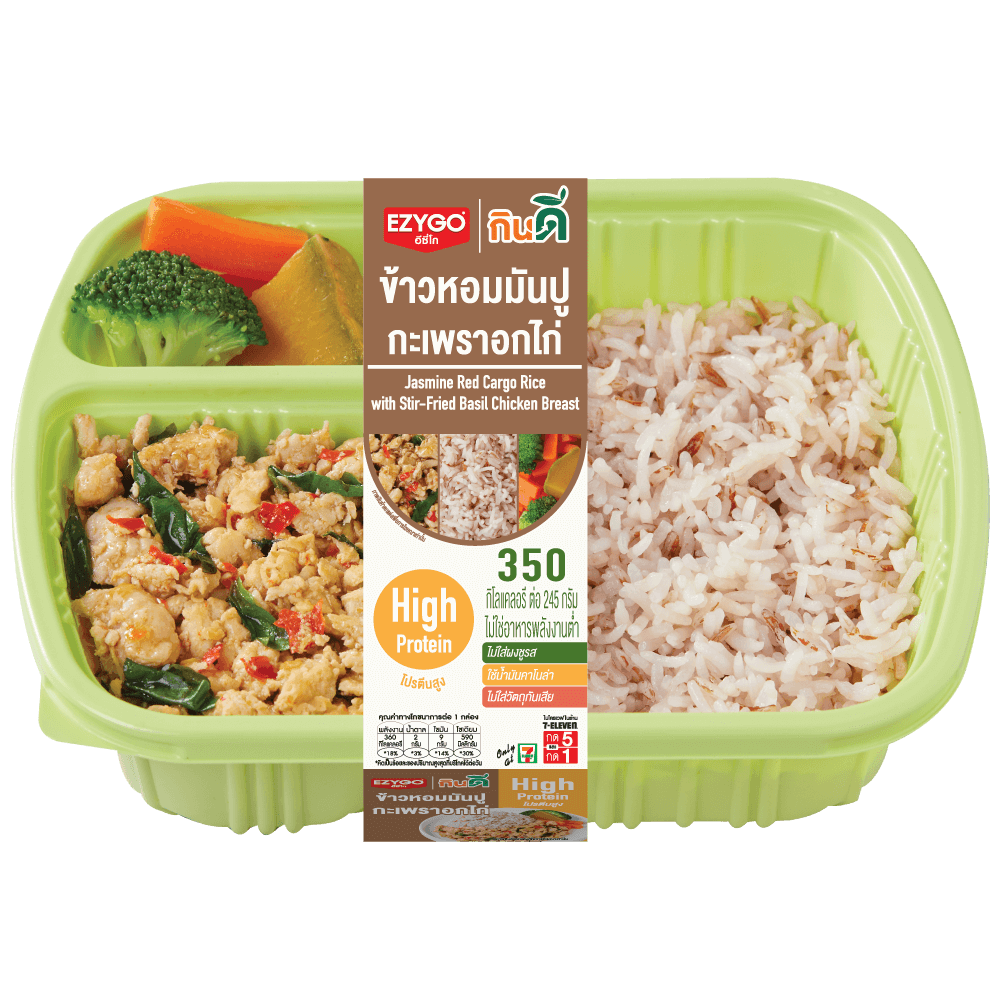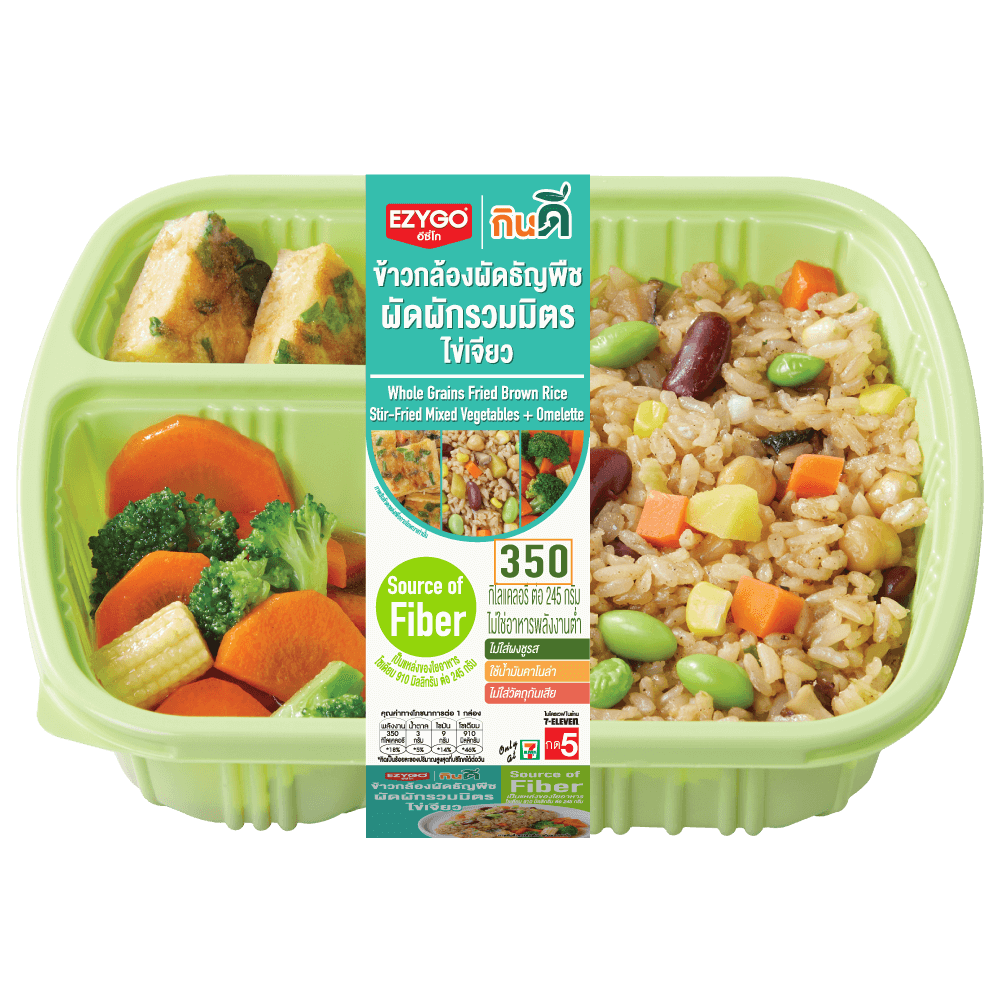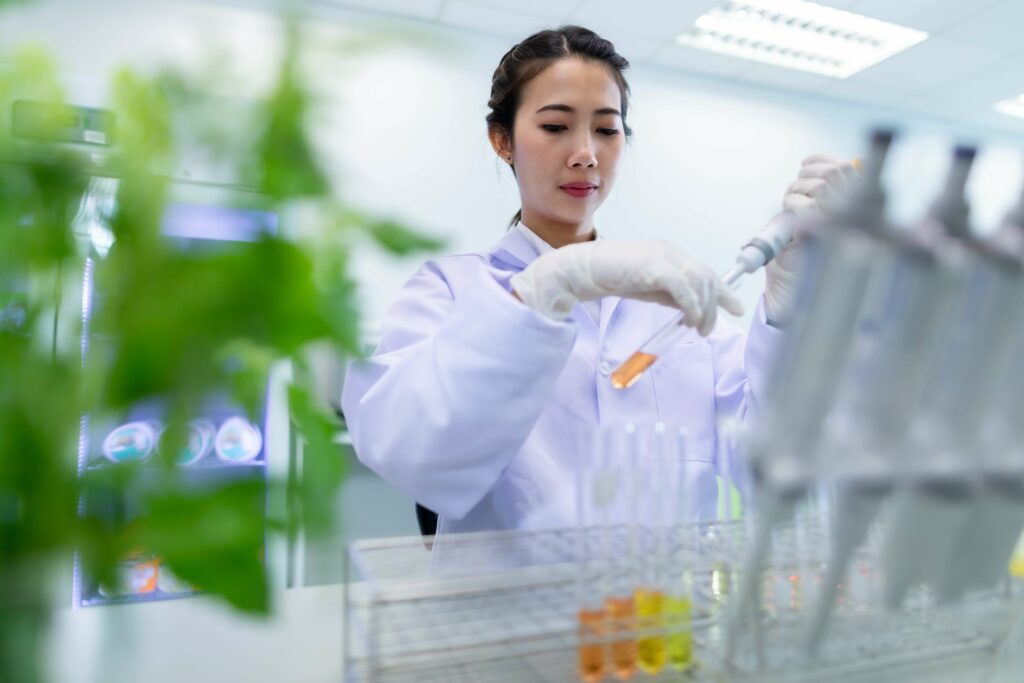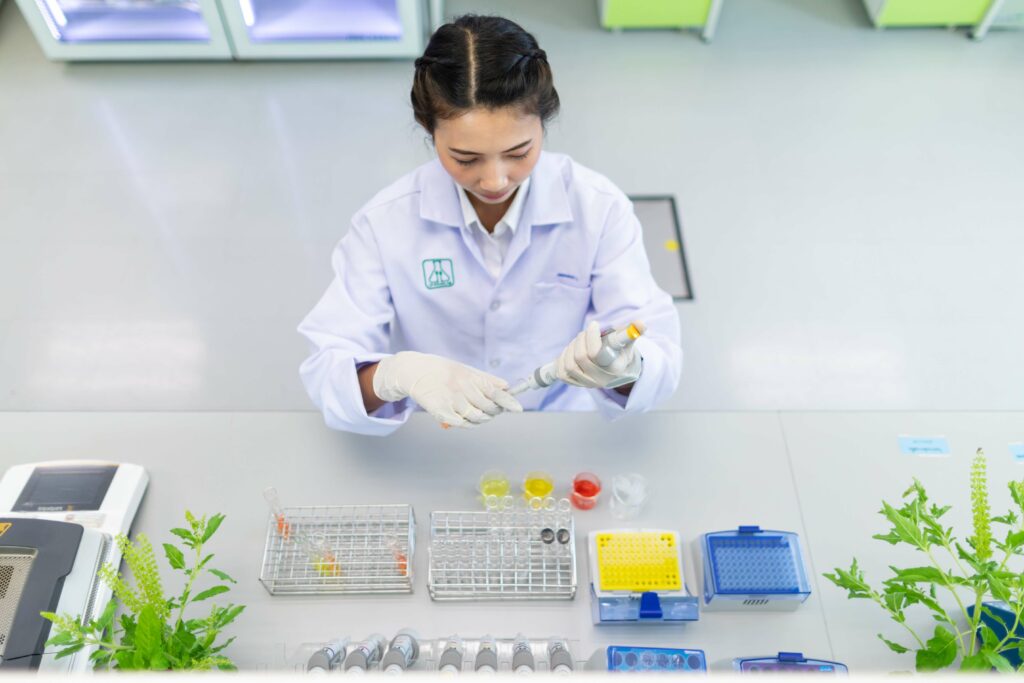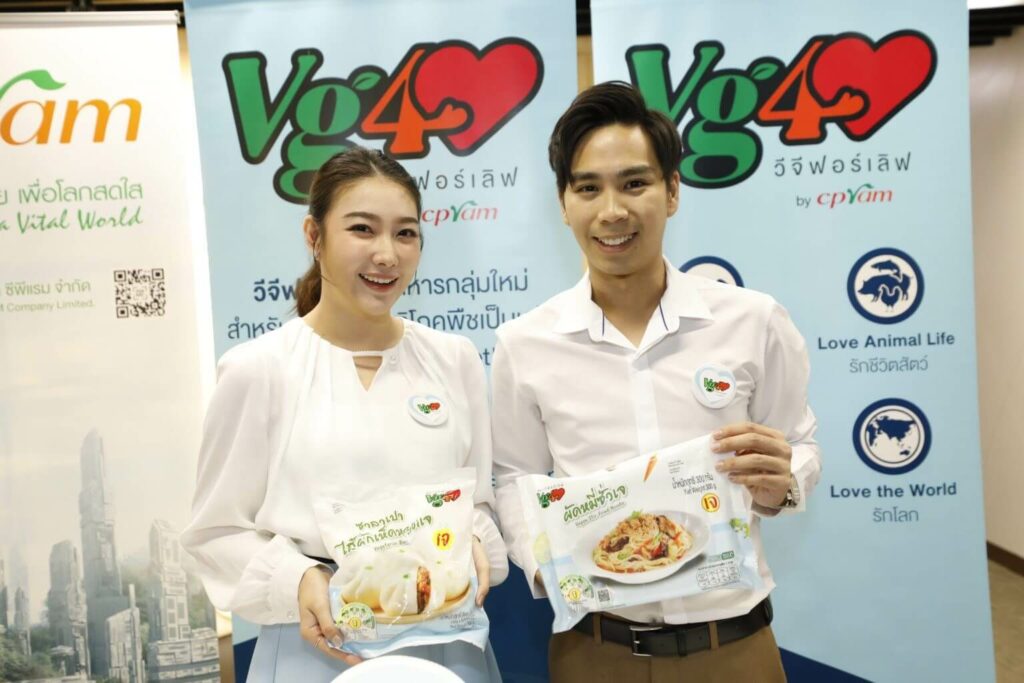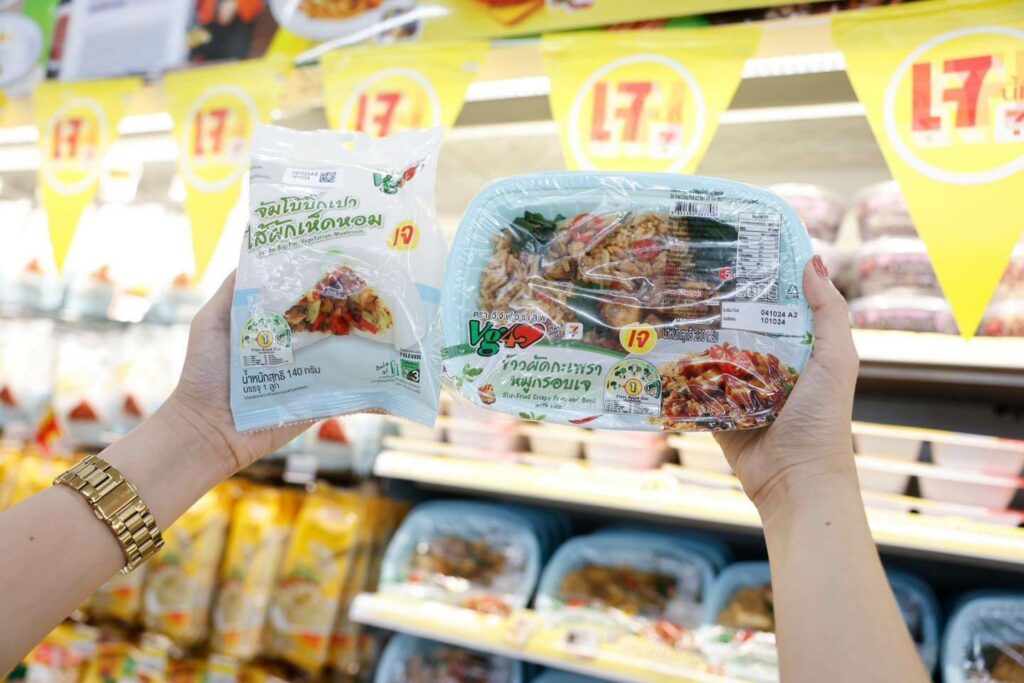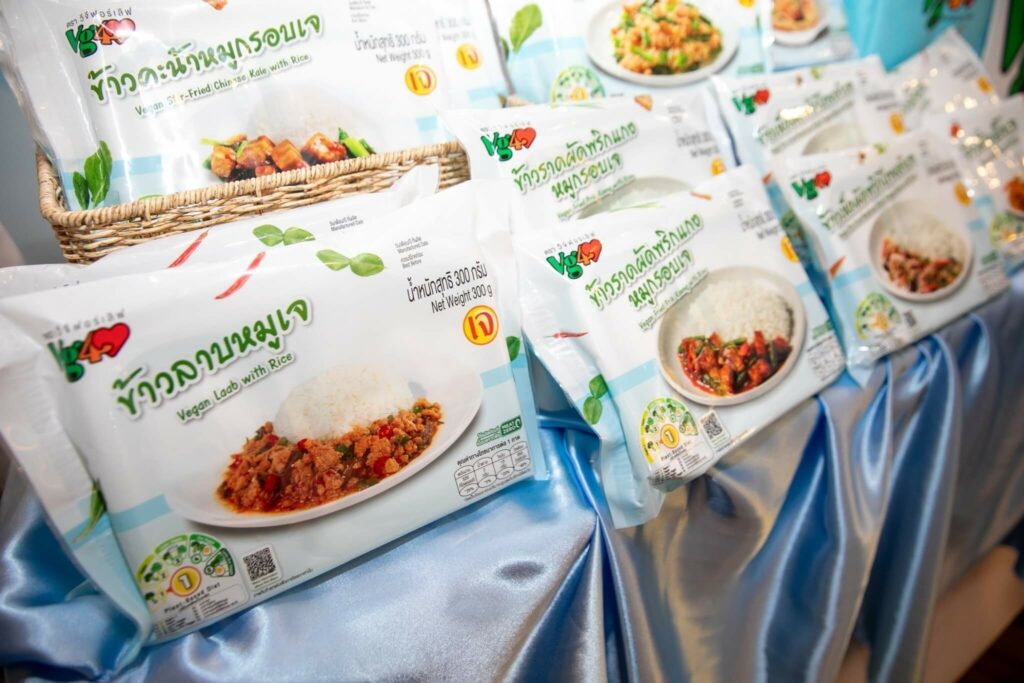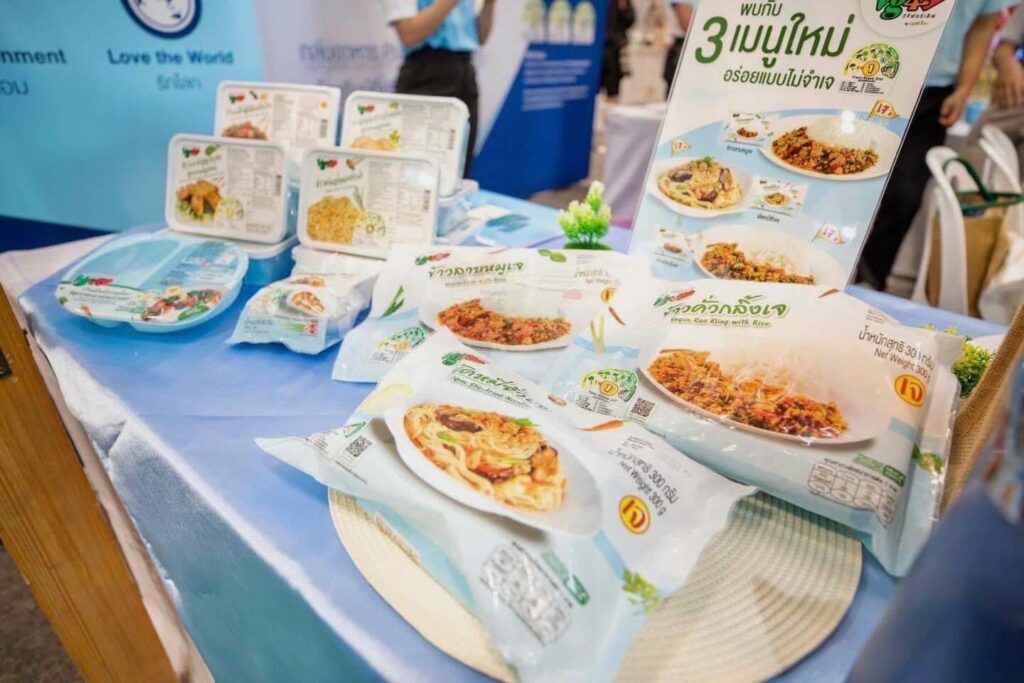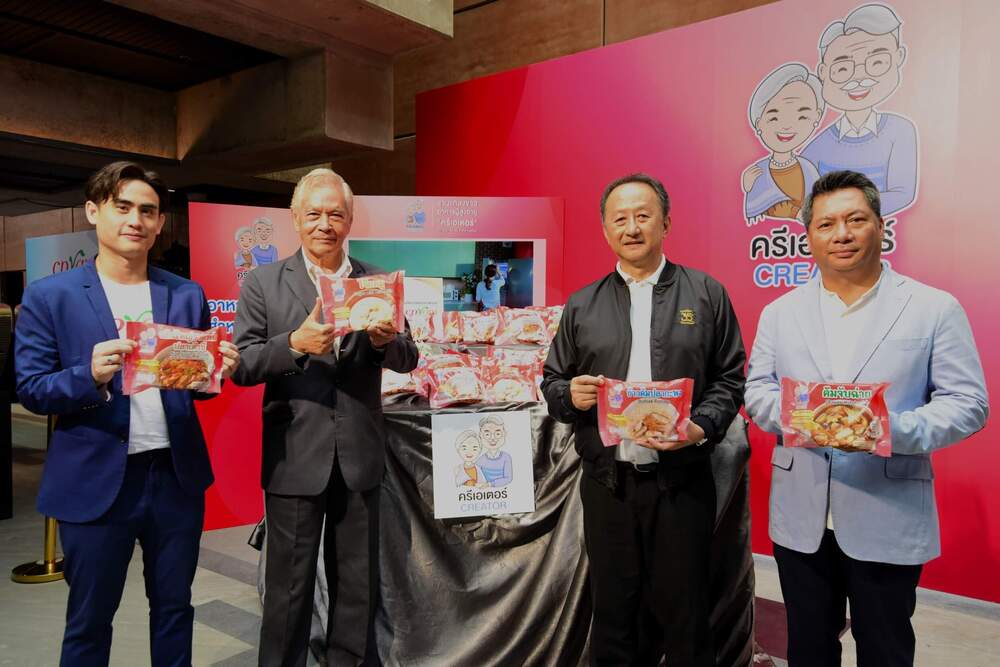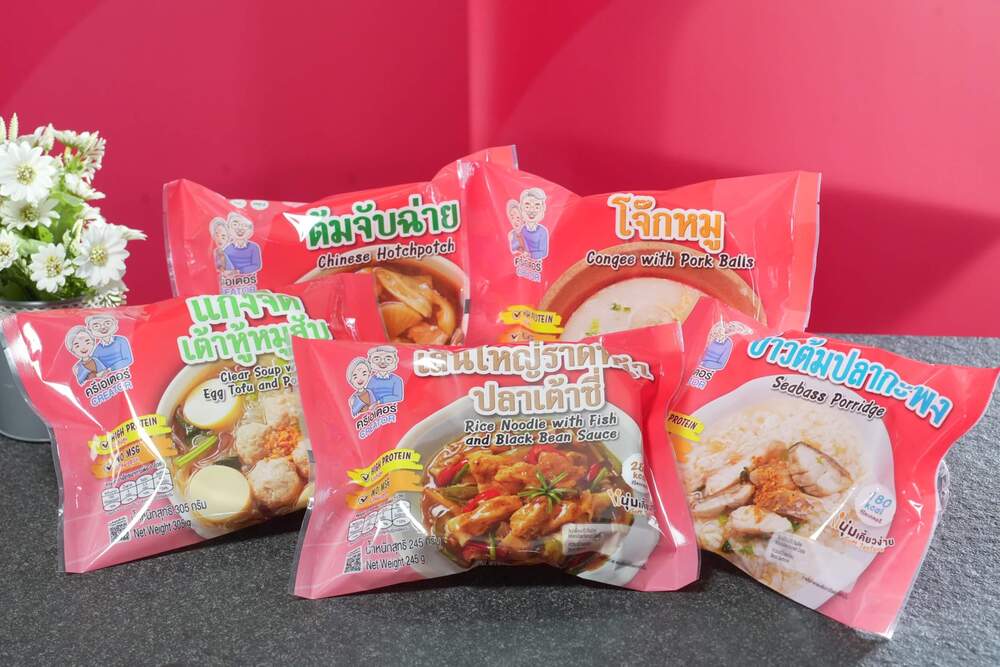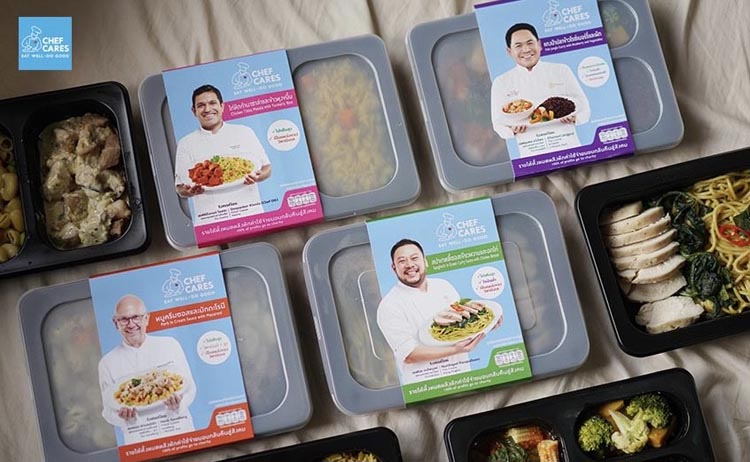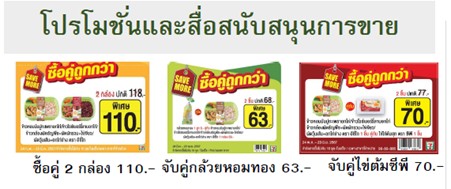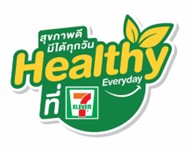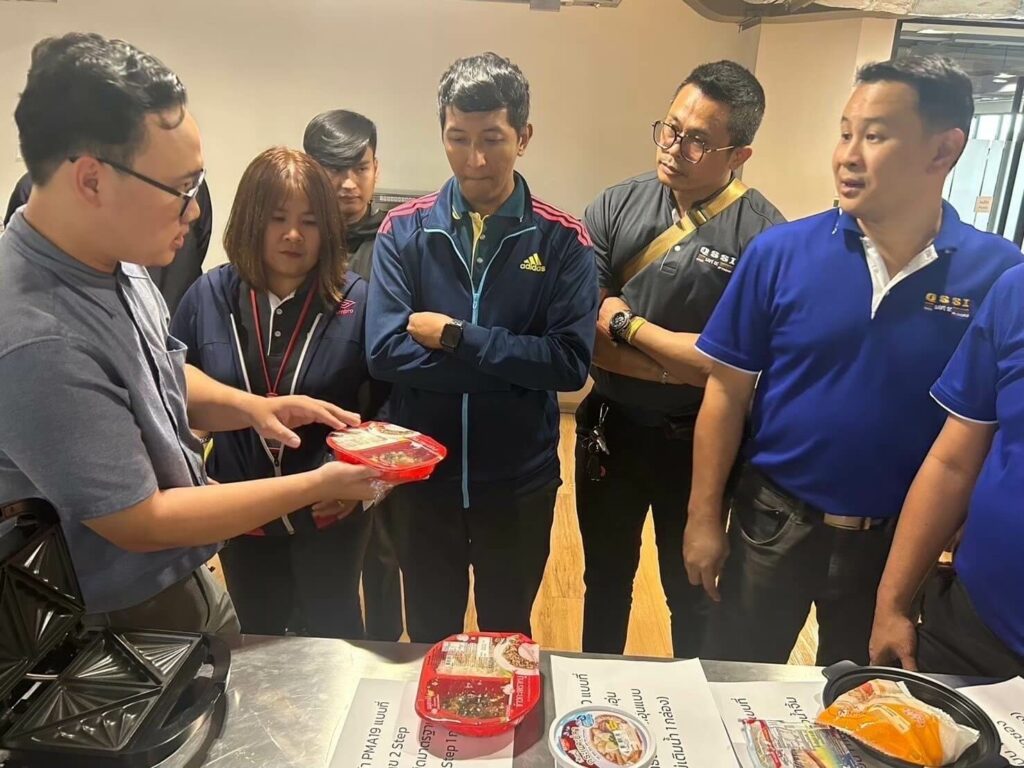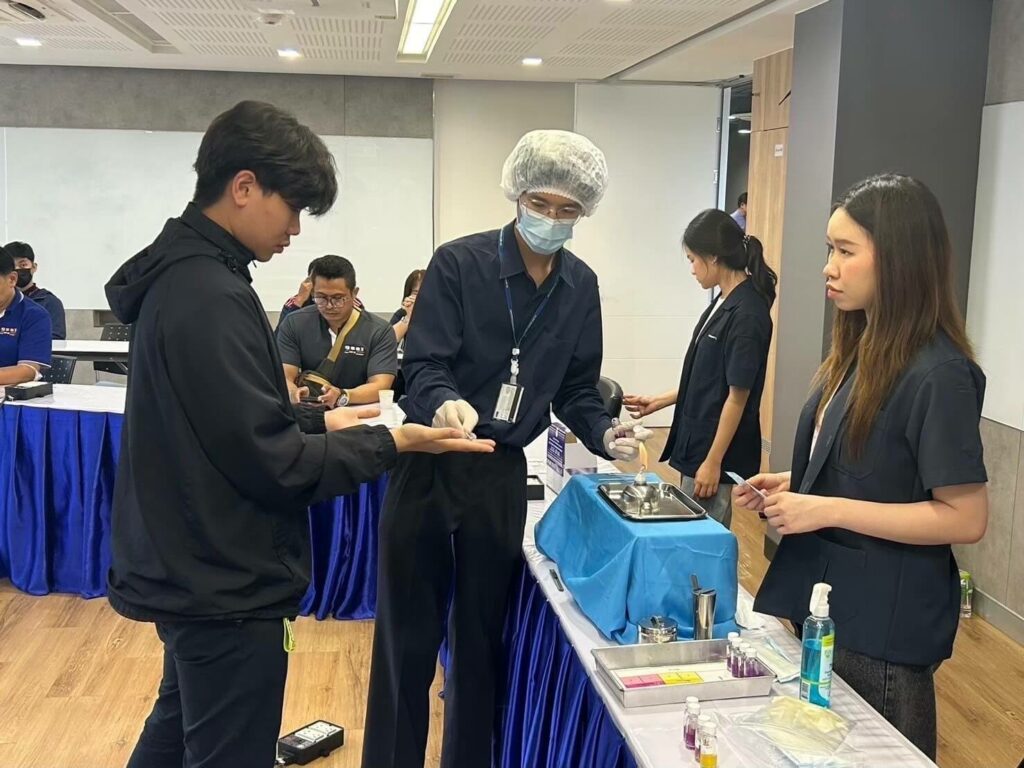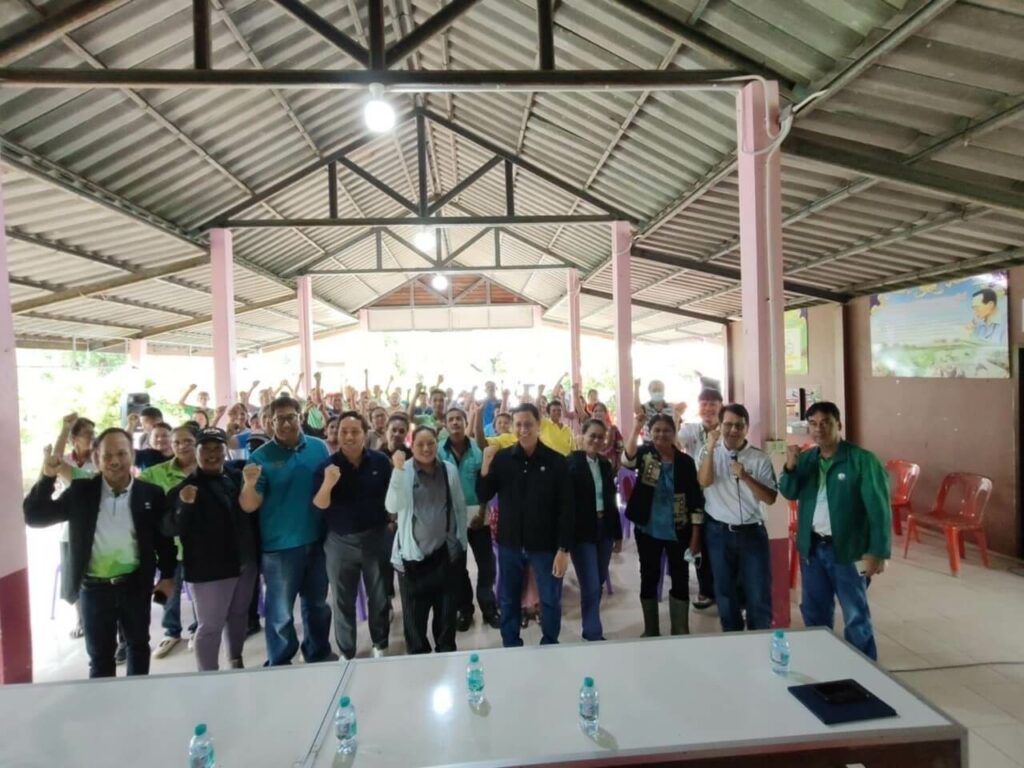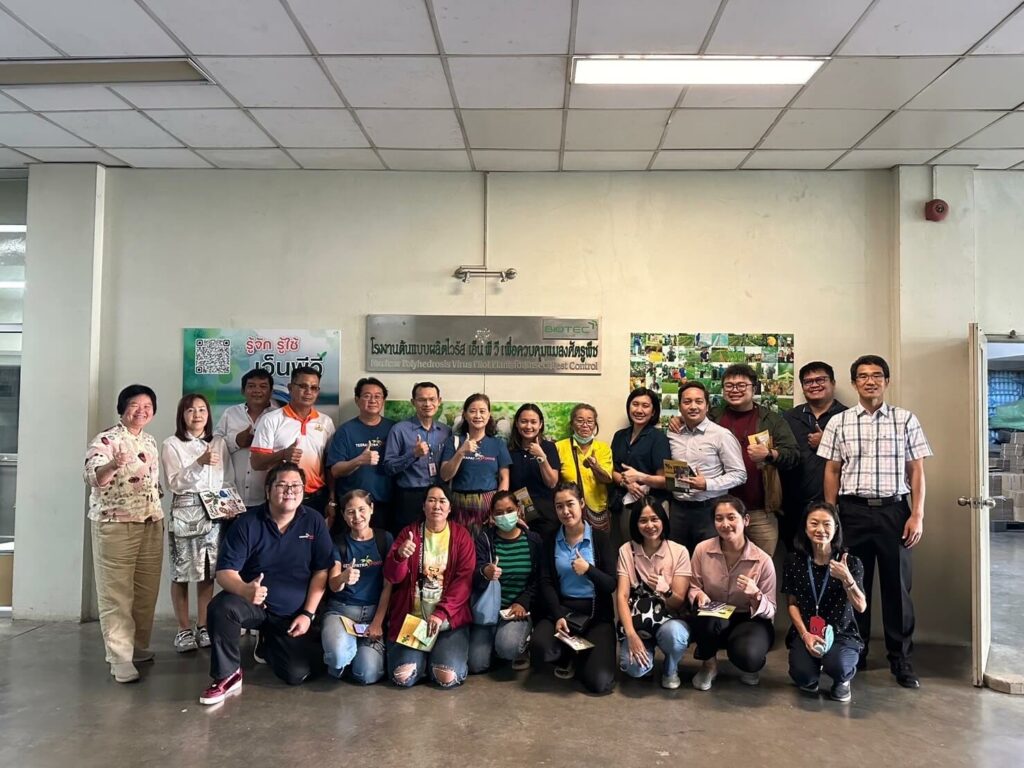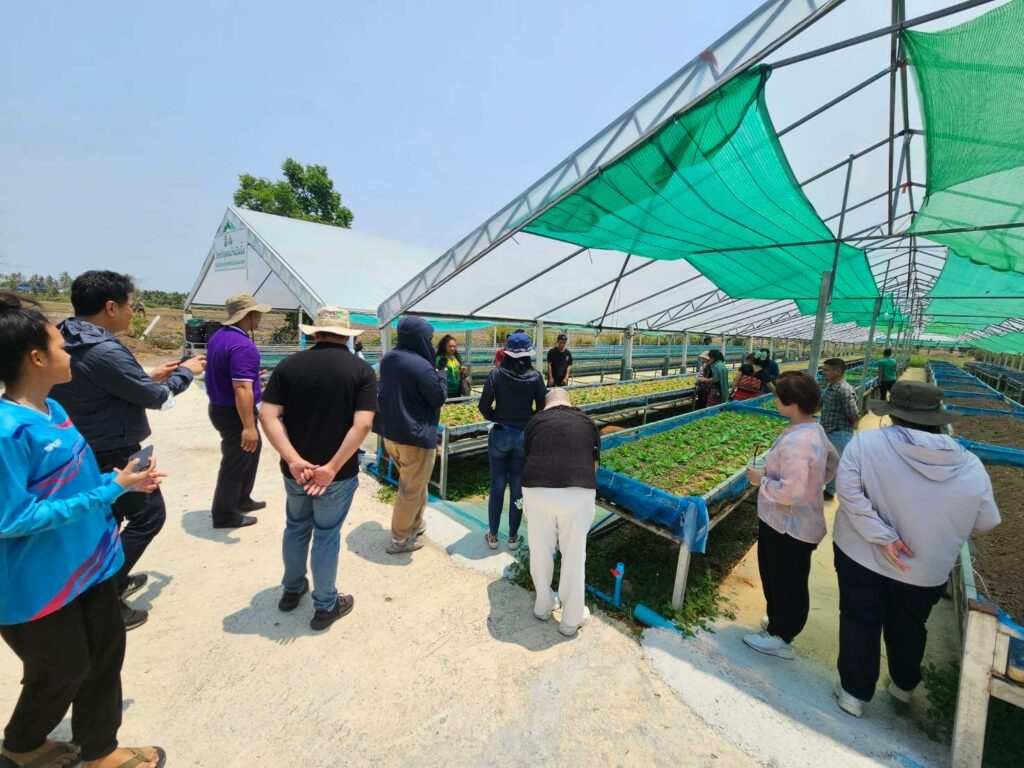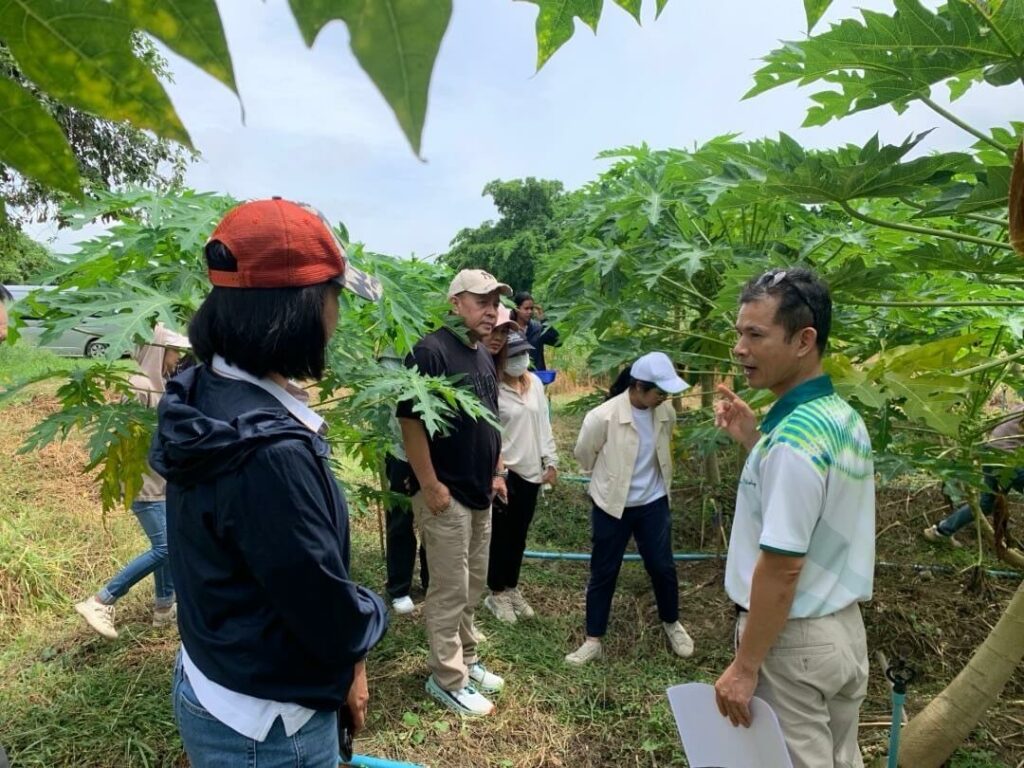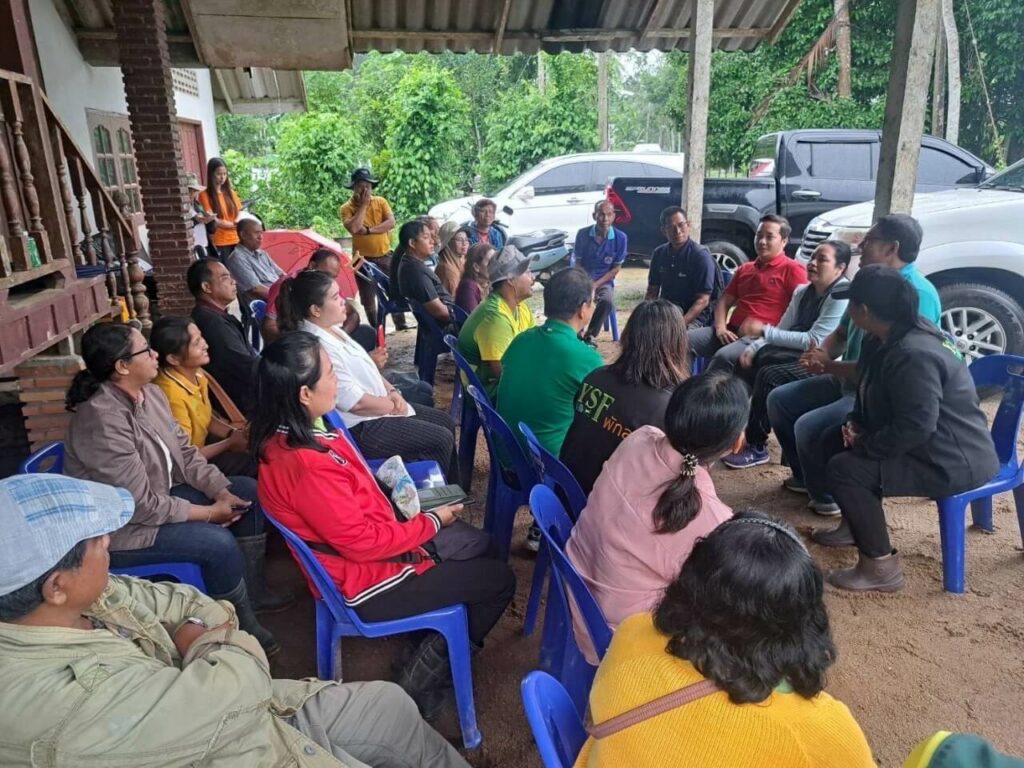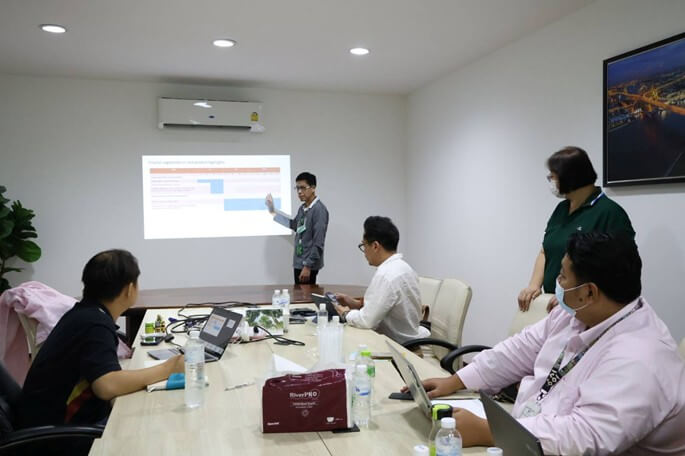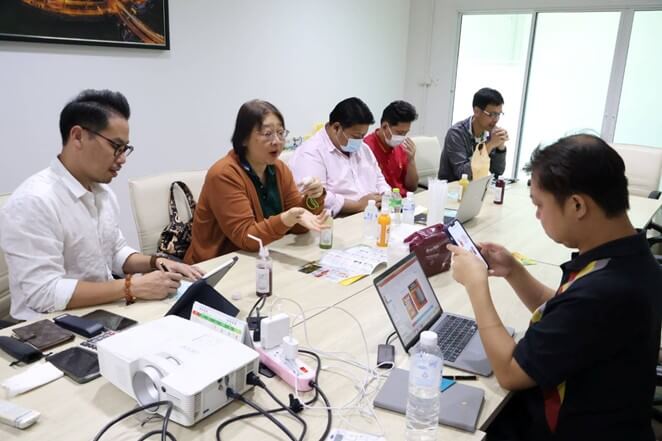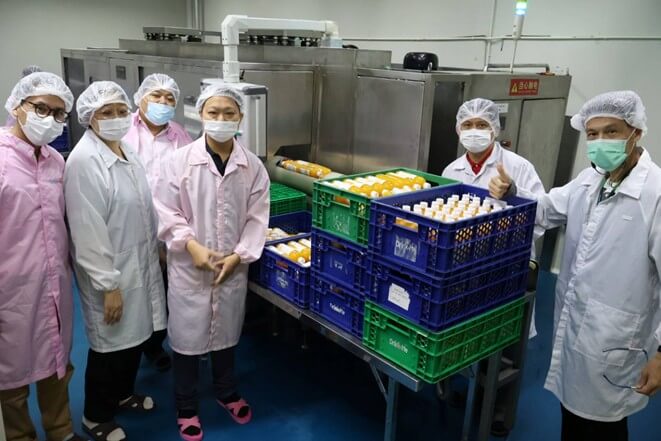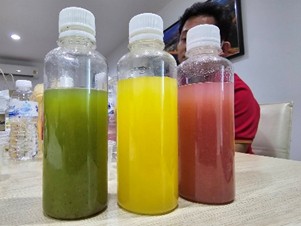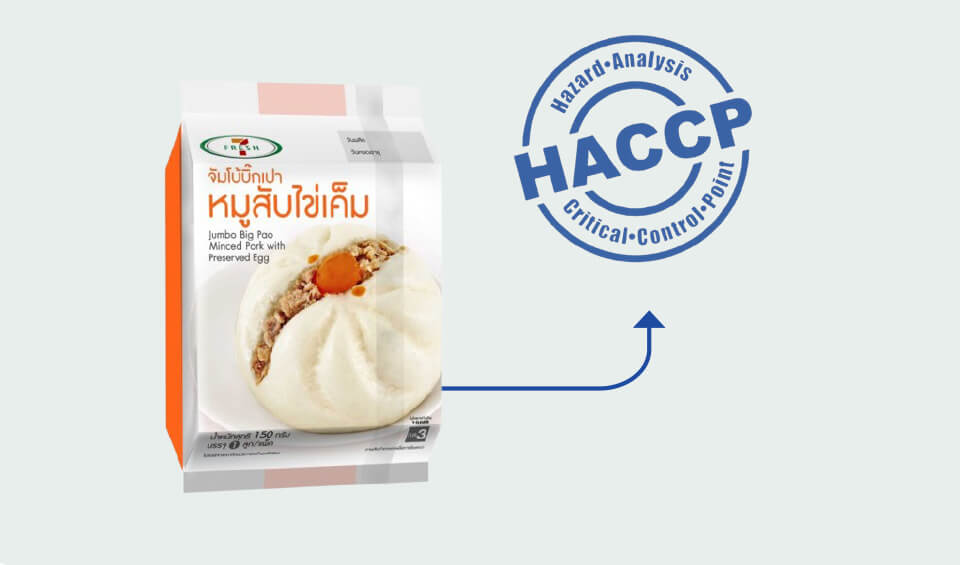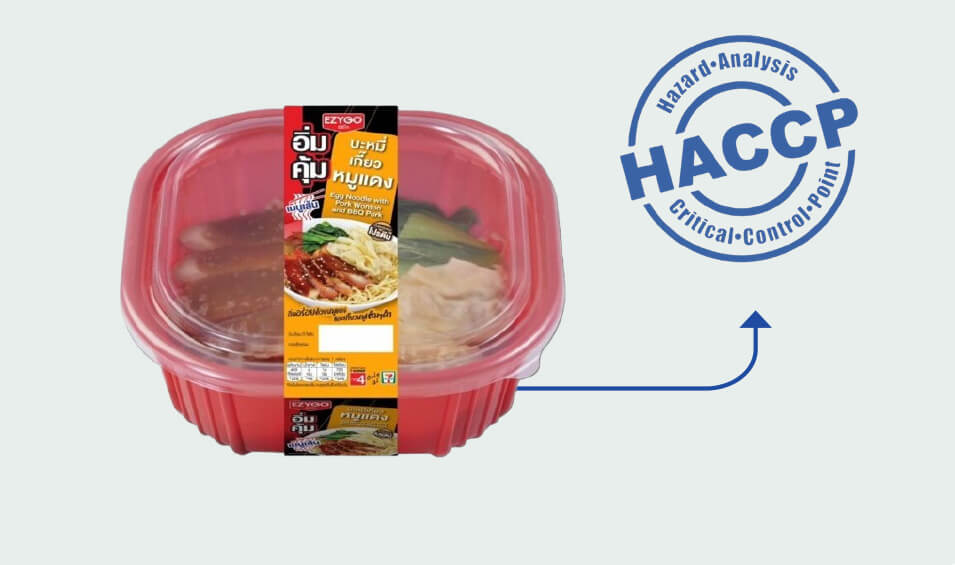Good Health and Well-being
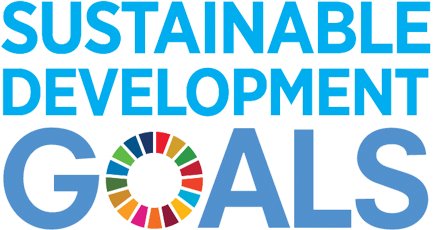
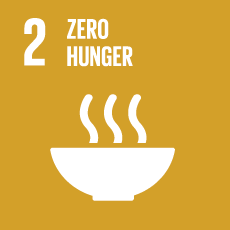


Key Performance in 2024
New Nutritional Products
Sales of New Nutritional Products
Sales of Organic Products
Sales of Organic Products (Non-Food)
Participants in the health care awareness program: “Healthy Community”
Recall of products which may affect consumer health
Key Progress in 2024

Elderly food project

”Good Health with Healthy Boxed Lunch” under the brand EZYGO Eat Well, “Delicious, Easy, Healthy” healthy boxed lunch project

“Chef cares Ready Meal” Health food products project

Create safety and product quality awareness among employees and suppliers
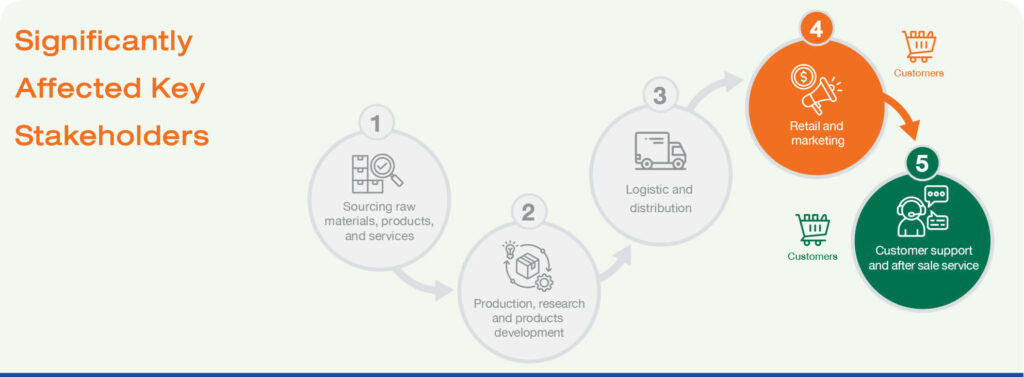
Supporting the SDGs

End hunger, achieve food security and enhance nutrition and promote sustainable agriculture
2.1 End hunger and provide security for all, especially the poor, those in a fragile state, and infants-they should have the right and access to safe and nutritious food

SDG 3 Ensures healthy lives and promotes well-being for all at all ages
3.8 Achieve universal health coverage, including financial risk protection, access to quality essential health services, access to essential medicines and vaccines which are safe, effective, high-quality and affordable

SDG 12 Ensures sustainable consumption and production patterns
12.4 Achieve management of chemicals and all waste categories throughout respective life cycle in an environmentally friendly method in accordance with agreed international frameworks, which significantly reduce emissions into air, water and soil, as a means to maximize reduction of negative impacts on human health and the environment
Performance Against Goal
Results of the “Double Materiality Matrix”
Sustainability Dimensions
Impact level for application in business operations
Progress against Short-term and Long-Term Goals
Increase the number of new health & nutrition products and services
(includes Reducing levels of fat, salt, sugars, or additives, Fortifying foods with increased nutritious ingredients)
Performance Summary in 2024
Research and development of products for good health and well-being

Personnel in research and development

Research outcomes

Allocated budget

Research and development agencies

Suppliers/external agencies collaborating in research and development
| 2021 | 2022 | 2023 | 2024 | |
|---|---|---|---|---|
| % Healthy products revenue |
Total sales of Private Brand
Total sales of Private Brand Health Product
Total sales of Private Brand Health Product by Category
Food

Reduced saturated fat, Trans fats

Reduce sodium

Reduced sugar

Increased nutritious ingredients

Reformulated

Reduced fertilizers

Reduced artificial ingredients

Reduced portion size

Organic products
Non-Food

Reduced artificial ingredients

Organic products

Natural vegetable based ingredients

EU-Eco Label or third party equivalent
Remarks: The information reported only covers jointly developed products (Private Brand: PB) sold through various CP ALL offline and online channels
Nutritional Labelling on Products

Display nutrition labels information of international
standards compliance of products

Display nutrition labels information of Guideline Daily Amounts (GDA) by the voluntary for Ready-to-Eat Food and Beverage at
Risks and Opportunities
In 2024, health risks are likely to increase due to adverse effects from climate change, air pollution, and current societal needs. Thus, consumers view health-promoting products in higher regard and have increased product quality expectations. The Company focuses on research and product development throughout all production activities from raw materials sourcing to distribution to reduce disparities concerning rights to health among consumers and vulnerable populations.
This approach aims to provide the elderly and low-income individuals with access to healthy and nutritious product options. In reducing potential health risk and ensuring basic consumer rights to good health, healthy food offerings include organic produce and products low in fat, sodium, sugar, additives, salad products free from exposure to fertilizers and chemicals to boost agricultural quantity, and products high in protein. Moreover, nutritional information is completely displayed on the packaging to promote health and well-being of consumers in every dimension.
Management Approach
The Company operates under the “Good Health & Well-being” policy and strategy in terms of health and nutrition to promote health and well-being among consumers through focusing on producing and distributing high nutritional value products, developing health products not only to satisfy consumer demands but also international safety standards, and ensuring product information transparency through easily legible labels according to respective national rules and regulations.
In addition, the company emphasizes food innovation and nutritional enhancement by focusing on research in collaboration with its affiliated entities, such as CP Foodlab Company Limited and the Product Management Division of CP ALL Public Company Limited. Furthermore, the company partners with external organizations involved in food innovation and health technology, such as the National Science and Technology Development Agency (NSTDA), to develop products that meet consumer needs.
To further increase the variety of choices for consumers, the Company delivers organic products and natural-based ingredient products in the beauty, cosmetics, and household category in addition to those offered in the food and beverages category.
The Company highlights responsible sourcing of quality materials which must be certified and traceable, especially for genetically modified organisms (GMOs).
The Company continuously monitors and reviews performance to ensure consistent promotion of consumers’ health and well-being is consistent with expected progress against short-term and long-term goals. Data is also collected to develop policies, operational plan and effective future research proposals. In addition, the Company emphasizes monitoring and inspecting product labels to ensure conformation to Company requirements and adherence to consumer safety. In 2024, the Company recorded zero cases involving vague descriptions of key ingredients, usage instructions, product recommendations, or advertisements deemed noncompliant with legal requirements, basic standards, the Company’s practices or relevant consumer expectations.
Research and development of health promoting products according to the health-conscious choice criteria
Criteria for health promoting products in the food and beverage category
The Company complies with and refers to the Ministry of Public Health announcements relating to nutritional and health standards to develop health promoting products in addition to determining food and beverage criteria classified as health products. 4 categories of products mentioned are as follows:

Foods that have an increased or decreased nutrition or without nutrients according to the law or standards, e.g., according to the announcement of the Ministry of Public Health (No. 182) B.E. 2541 (1998)
(Thai Reference Daily Intakes (Thai RDIs) are established based on the Nutrient Reference Values (NRVs) set by the international food standards, Codex Alimentarius, which are determined based on the recommended daily intake of nutrients.)

Fresh vegetables and fruits or foods that retain their natural benefits or have not to pass manufacturing processes or food with nutrition and sufficient energy for one meal

edical food, functional food, or food supplement according to the announcement of the Ministry of Public Health (No. 238) B.E. 2544 (2001) and the Ministry of Public Health (No. 293) B.E. 2548 (2005)
Examples of healthy food and beverage products
Reduced sugar, fat or sodium products
Good Mate Sugar-free Formula Oat Milk 180 ml.
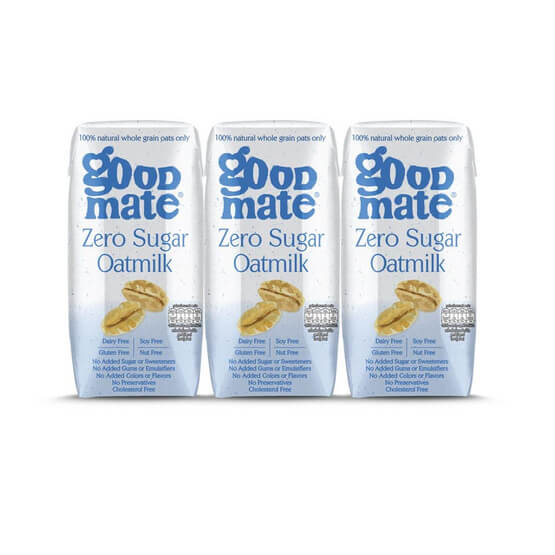

Product features and health benefits:
Good Mate 0% sugar oat milk is free from additives, cow’s milk, lactose, gluten and all kinds of nuts and is gentle towards the gastrointestinal system while retaining high amounts of calcium, vitamins, and fiber from natural oats

Release date:
August 22, 2024

Number of branches where products are available:
Nationwide
Products with added nutritional value
Vitaday Vitamin C Gluta Water 480 ml.
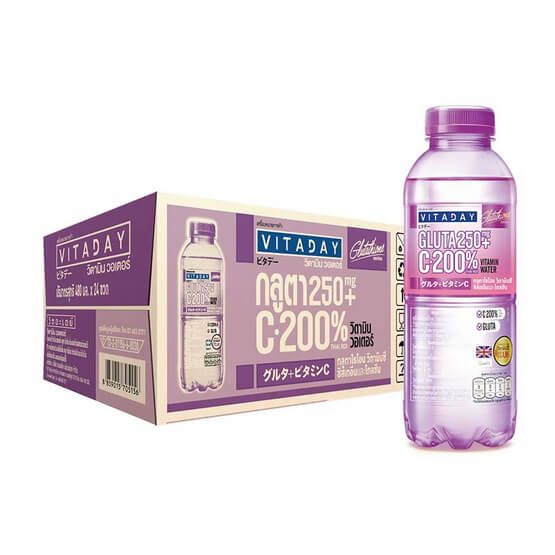

Product features and health benefits:
Sugar-free vitamin infused beverage containing concentrated glutathione and vitamins imported from England which aids the body in glutathione absorption. The product also contains glycine and cysteine, amino acids essential towards body function

Release date:
March 21, 2024

Number of branches where products are available:
Nationwide
Improved formula products
Spicy Minced Pork & Grilled Pork with Rice


Product features and health benefits:
Adding on to the deliciousness of the best-selling menu through recipe adjustments (Level Up), a protein source made even more delicious and spicy with authentic laab ingredients

Release date:
June 2, 2024

Number of branches where products are available:
Nationwide
Additive Reduced Products
Jasmine Red Cargo Rice with Stir-Fried Basil Chicken Breast


Product features and health benefits:
High in protein, no MSG added, no preservatives added and nutrition from carrots and broccoli

Release date:
February 15, 2024

Number of branches where products are available:
500
Products with natural main ingredients
V Farm x Suwan Farm Corn Milk 280 ml.


Product features and health benefits:
V Farm x Suwan Farm Corn Milk uses main ingredients from natural sources and contains probiotics from corn to promote intestinal health

Release date:
August 15, 2024

Number of branches where products are available:
Nationwide
Fertilizer reduced products and Organic products
Organic Cos Salad 60 g.


Product features and health benefits:
Ready-to-eat organic vegetables contain vitamins and minerals

Release date:
January 20, 2022

Number of branches where products are available:
4,691
Fertilizer reduced products and organic products
BEAR BRAND Enriched UHT Milk 170 ml.


Product features and health benefits:
Bear Brand Enrich Honey, Sugar-Free Formula–delicious in the signature Bear Brand way. Naturally fragrant and mildly sweet from real honey, with no added sugar. Perfect for health-conscious individuals

Release date:
June 18, 2020

Number of branches where products are available:
Nationwide
Criteria for non-food health promoting products
The Company highlights and promotes the distribution of products beyond the health food category through offering beauty, cosmetics and household products. The Company has established criteria for the product categories mentioned as follows:

Organic product

Additives reduced products

Products containing natural components or ingredients

Products with eco-friendly product labels
Examples of non-food products for health
Personal Products / Cosmetics
Organic Products
ohnson’s Baby Powder Corn Starch Blossom 50 g.


Product features and health benefits:
Johnson’s Corn Starch Blossom Baby Powder, made from 100% natural ingredients and tested for safety by dermatologists (tested at the Johnson & Johnson Consumer Inc. laboratory, April 2017, United States), is powder product which absorbs moisture 2 times better to reduce chances of skin sensitivity. The refreshing scent helps your baby feel fresh for a long time

Release date:
July 20, 2023

Number of branches where products are available:
Nationwide
Additive Reduced Products
Cute Press Full Night Sleep 10 g.
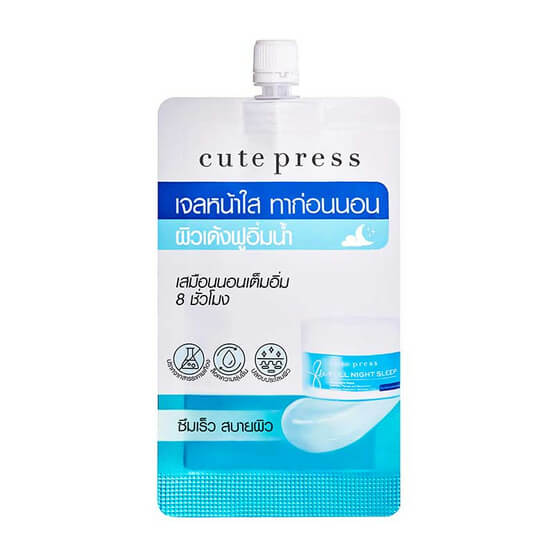

Product features and health benefits:
Sleeping mask with gel texture and concentrated nourishing formula without additives including silicone, alcohol, mineral oil, parabens, and synthetic dyes, assists in restoring skin and retaining moisture for up to 10 hours. Apply before bed without washing off. It helps prepare the skin for makeup the next morning and gives a feeling of freshness and comfort to the skin with a gentle fragrance with helps with relaxation
before bed

Release date:
January 30, 2020

Number of branches where products are available:
Nationwide
Products containing natural components or ingredients
Tamarind Honey Scrub 70 g.
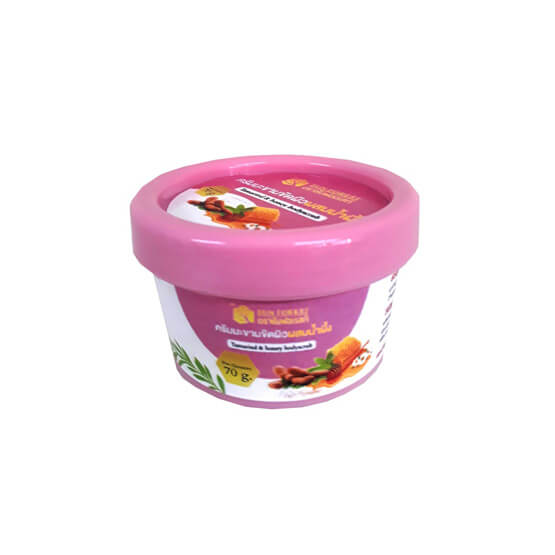

Product features and health benefits:
Skin scrubbing cream with ingredients from natural herbs. Tamarind from Phayao province as the main raw material is combined with honey, turmeric, aloe vera, lime water and fresh milk to help reduce acne, blemishes, freckles, and dark spots. It also helps exfoliate old skin cells to make the face smooth and soft, reduce dryness and irritation and delays premature aging

Release date:
April 8, 2016

Number of branches where products are available:
6,400
Household Products
Products with eco-friendly product labels
SUNLIGHT Lemon M Size 485 ml.


Product features and health benefits:
Concentrated dishwashing liquid with components of real lemon is made from 100% natural enzyme extracts and comes with packaging made from 100% recycled plastic

Release date:
October 8, 2017

Number of branches where products are available:
Nationwide
Additive Reduced Products
KAYARI FLASH & COOL 30 ml.


Product features and health benefits:
KAYARI mosquito repellent spray product dry and cool formula incorporates ingredients from chrysanthemum flowers, cloves and eucalyptus while reducing DEET to 10% (other commercial brands use 12%-15% DEET) to increase mosquito repellent efficiency for up to 7 hours

Release date:
November 7, 2024

Number of branches where products are available:
5,300
Products containing natural components or ingredients
Breeze Excel Signature Liquid Detergent Pink Floral Breeze 700 Ml.
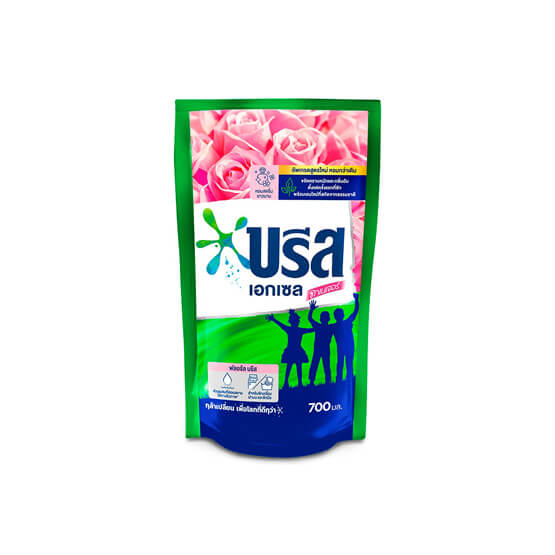

Product features and health benefits:
Concentrated laundry detergent made from natural enzyme extracts which removes heavy stains even after 72 hours with a fresh scent lasting all day

Release date:
December 22, 2016

Number of branches where products are available:
Nationwide
Creating awareness and support for healthy product consumption
The Company develops knowledge and research health products in collaborating with various agencies with expertise in food, cosmetics, and cosmeceuticals, CP Foodlab Company Limited has partnered with the Thailand Institute of Scientific and Technological Research (TISTR) to develop health products derived from holy basil oil to help alleviate inflammation in the oral cavity and throat. In product development, CP ALL Public Company Limited collaborates with the National Science and Technology Development Agency (NSTDA) to provide nutritional analysis services, including sodium, sugar, fat, and trans fat content, for both internal and external organizations.
CPALL has set specific requirements for informative product packaging displays. Supplementary nutrition information and nutrient declarations on all products in all markets are provided to help consumers understand the ingredients and nutritional values that may impact health and safety. This includes a standardized list of ingredients, an allergen statement, Guideline Daily Amounts (GDA), information about the packaging material, and Halal labeling displayed on both the front and back of the packaging.
Additionally, the Company specifies details of key components and safe usage for clarification through product labels in accordance with laws or standard practices, such as energy values per serving, fat, sugar, and sodium. In 2024, operations have been implemented to cover 100% of ready-to-eat food and beverage SKUs according to laws or regulations while implementation of other guidelines the Company adheres to is at 40.17%. This approach details main ingredient and nutritional value information to consumers who may wish to avoid certain foods inappropriate for their consumption, especially consumers with chronic diseases.
In tandem with other implementations, the Company emphasizes displaying environmentally friendly product labels, comprising Carbon Footprint information or Animal Welfare standards, etc., to build confidence and support sustainable consumption.
Managing product quality and safety throughout the supply chain
The Company considers quality and safety of products throughout the supply chain through establishing quality control standards from cultivation, production, receiving products, arranging and distributing products, sales and services to guarantee confidence in the safety and reliability of offered products and services. The Company has designated a unit to inspect product quality standards and 7-Eleven store standards while maintaining consumer safety as the number one priority, especially when concerning products containing GMO ingredients where compliance with laws and regulations is strictly abided to ensure the safety and standards of raw materials and products. In addition, the Company has established a stringent process for raw materials sourcing which ensures responsible sourcing throughout the supply chain. Suppliers are provided with resources and support in materials sourcing via questionnaires and certification of certain products as required by law. Suppliers are encouraged to display product labels transparently by specifying information regarding ingredients, raw materials, or genetically modified products to provide consumers with accurate and complete information.
Key Projects in 2024
In 2024, the Company performed awareness activities, product support and access to safe foods in addition to developing products for good health according to the health-conscious choices criteria continuously. This approach increases adequate and appropriate nutritional value under the “Good Health & Well-being” strategy through various projects as follows:
“Good Health & Well-being”
Product & Service
Developing and selecting products which are delicious, diverse, safe, and nutritious
Place
Find the right location, create a good atmosphere, drive consumption,
increase distribution convenience and access for customers
People
Provide knowledge and understanding among consumers and communities, along with staff skills development
Channel
Create access to health products and services in all channels; offline and online, and vending machines
Technology
Utilize artificial intelligence technology to analyze data, develop health
applications and continue to increase sales and products which satisfy
customer needs
1. Research and development of health promoting products according to the health conscious choice criteria
R&D investment to improve nutrition
The company places strong emphasis on continuous investment in research and development (R&D) to enhance the nutritional quality of its products. At the core of this effort is the integration of innovation to create foods with improved nutritional value, promoting better health for consumers and contributing to long-term quality of life and well-being. This commitment is reflected through a variety of initiatives, including:
Low-Sodium Product Formulation Development Project (Private Brand)
This project aims to research and develop food products with reduced sodium content while maintaining taste, safety, and quality that meet consumer acceptance. The primary goal is to promote public health by responding to the growing demand for healthier food options. By offering lower-sodium alternatives, the project seeks to help reduce the risk of non-communicable diseases (NCDs) such as hypertension, heart disease, and kidney disease.
Low-Sodium Product Development Process
| 1. Research and Prototype Formulation | 2. Consumer Satisfaction Testing | 3. Safety and Quality Analysis | 4. Scale-Up and Commercial Production |
|
|
|
|
In 2024, the company, in collaboration with partners, developed sodium-reducing agents to be used in main meal products, including pork rice porridge, shrimp rice porridge, spicy chicken spaghetti, and stir-fried pork with basil rice, among others. The outcomes of this initiative are as follows:
| Target | Result |
| Representing 80% of all main meal products | Representing 75% of all main meal products |
EZYGO “Eat Well, “Delicious, Easy, Healthy” healthy boxed lunch project
Consumption of healthy food has become increasing popular, and 7-Eleven has capitalized this opportunity through developing healthy boxed lunch products under the brand “EZYGO Eat Dee” to satisfy the needs of health-conscious consumers. This product offers are free from MSG or preservatives, uses canola oil which is high in unsaturated fatty acids, and does not exceed 450 kilocalories per box. The various menus comprise Riceberry Mixed Jasmine Rice with Spicy Chicken Breast, Fragrant Red Cargo Rice with Grilled Chicken and Thai Spicy Sauce, Riceberry with Stir-Fried Pumpkin, Egg and Chicken Breast, etc. The launch of this product not only provides a solution to consumer health needs but also aligns with goals of promoting good health and well-being, reduced environmental impact through quality raw material sourcing, and awareness of the benefits to healthy food consumption among consumers.
Impact and Benefits

Sales of “EZYGO Eat Dee” healthy lunch box products amounted
Nutrient-Enriched Product Formulation Development Project (Private Brand)
Examples of Private Brand Health Product
Food Products
Whole Grain Pumpkin Bread


Product features and health benefits:
ow cholesterol and rich in dietary fiber

Release date:
July 15, 2024

Number of branches where products are available:
Nationwide
Riceberry Mixed Jasmine Rice with Spicy Chicken Breast


Product features and health benefits:
High in protein, no MSG added, no preservatives added

Release date:
February 15, 2024

Number of branches where products are available:
500
Grilled Salmon Salad


Product features and health benefits:
Contains vitamin A

Release date:
January 22, 2024

Number of branches where products are available:
Nationwide
Spicy Mushroom Larb Ball


Product features and health benefits:
A source of protein / A source of dietary fiber

Release date:
September 19, 2024

Number of branches where products are available:
Nationwide
Beverage Products
Drinking Yoghurt


Product features and health benefits:
Contains 2,470 ml./100 ml. of fiber and high in vitamin C

Release date:
May 2, 2024

Number of branches where products are available:
Nationwide
Ongoing Project: Research and development of ready-to-eat products for good health
CP Foodlab Company Limited, a center of research and development know-how in research advancements, consultancy services, product testing, and engineering designs for ready-to-eat food, coordinates research and development cooperation among various government and private agencies to achieve sustainable development within the food industry.
In 2024, CP Foodlab conducted research and development initiatives to increase the value of healthy food products. This effort integrates applied research through a pilot study to effectively transform theoretical knowledge into practical applications within the industry.
Impact and Benefits

Research projects conducted

Total value of the research project
Ongoing Project: “Product research and development for consumers who are health conscious (VG For Love)”
CPRAM is committed to researching and developing new products which promote good health and well-being to deliver quality nutritious food from multiple dimensions including food safety, nutritional value, and aesthetics, under the brand VG for Love. The product fulfills the requirements of health-conscious consumers inclusive of groups focusing on plant-based diet and flexitarians in 4 forms of love: love of health, love of animal life, love the environment and love the world. Products are developed to satisfy consumer needs in 5 main categories as follows:
In 2024, the proportion of income from plant-based food menus increased by no less than 0.15% (or 43 million Baht) of total income from food and bakery products.
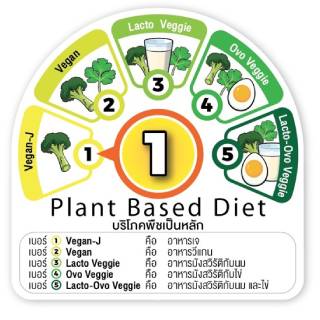
Vgan-J
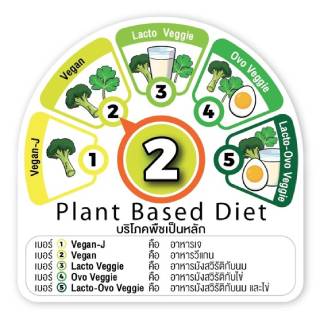
Vgan
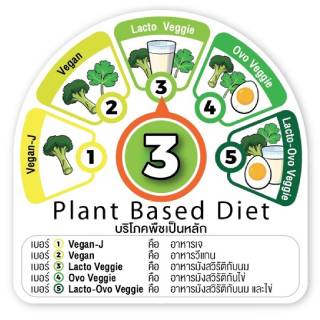
Lacto Veggie
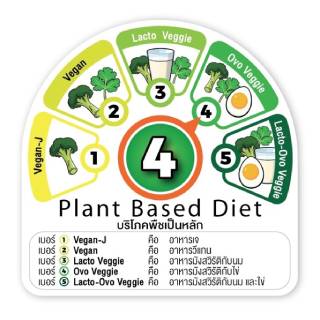
Ovo Veggie
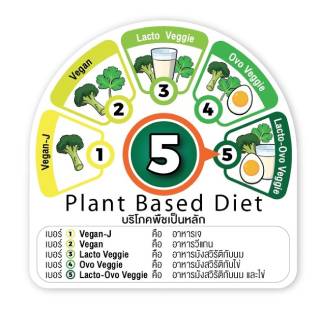
Lacto-Ovo Veggie
R&D investment to improve affordability or accessibility of healthy products
The company believes that everyone should have the opportunity to access nutritious and healthy foods. Our investment in research and development focuses on innovative products that meet the diverse needs of consumers while reducing production costs. We collaborate with leading universities and research institutions to develop new technologies and exchange knowledge aimed at enhancing product quality. At the same time, we strive to control production costs effectively to offer products at affordable prices without compromising their health benefits—especially for consumers with limited resources. This approach includes the following strategies:
1. Developing Gentle Food Processing Methods to Preserve Nutritional Quality This approach helps retain the nutritional value of processed foods.
The Vacuum-Frying Process for Banana Chips (Golden Banana Project).
Golden bananas are highly popular among health-conscious consumers. To add value to off-grade bananas that cannot be sold fresh, the company has developed a healthy snack made from golden bananas.
Based on research, the company selected vacuum frying technology as the most suitable method for processing fruits that are high in sugar and highly perishable. This technology better preserves the quality, flavor, and nutritional benefits of the bananas compared to conventional frying methods. The result is an oil-free popped banana product with natural sweetness and a crispy texture, without any residual oil.
This product meets the needs of consumers seeking healthy, ready-to-eat snacks. Additionally, packaging and pricing have been optimized, with plans to pilot market two product variants in 2,000 retail outlets.
2. Addressing and improving (micro) nutrient deficiencies and increasing nutrient bioavailability
Product Development Project for the Specific Needs of the Elderly
CPRAM is committed to creating high-quality food for Thai society and all consumers, promoting good health and well-being. The company has developed food specifically for the elderly, emphasizing health-conscious nutrition. “Creator” is designed with a focus on essential nutrients, the appropriate types and amounts of ingredients, and textures suited for chewing, digestion, and nutrient absorption according to aging needs. Not only for seniors, “Creator” is also a great choice for those seeking high-protein meals, ensuring complete nutrition. With its “easy to chew, easy to digest” formula, it offers a nutritious, delicious, and health-friendly option that aligns with the growing aging population in Thailand and worldwide. Currently, “Creator” is available at Makro, Lotus’s, and all 30 CPRAM outlets nationwide, generating an annual revenue of 561,128 Baht from this new product category.
3. Enhancing Refrigerated and Alternative Packaging and Distribution Systems in Low-Resource Areas This involves improving refrigerated or other suitable packaging methods and distribution systems in areas with limited resources to extend the shelf life of fortified foods
The company develops methods to extend product shelf life and facilitate transportation to remote areas, ensuring consumers everywhere have access to healthy foods. We utilize post-harvest innovations and technologies to manage raw materials effectively, including random pesticide residue testing for every production lot. Technologies such as air bubble and hydro cooling are employed to remove heat from raw materials, while heat treatment is used to slow down spoilage. Additionally, advanced packaging solutions are developed to further prolong product shelf life.
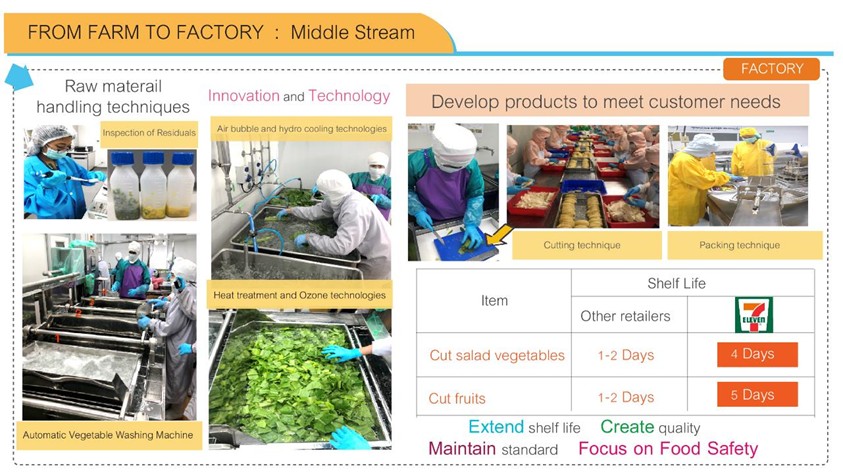
4. Promoting Access to Healthy Products
“Chef Cares Ready Meal” Health food products project
CP ALL selects food products which are good for Thai people’s health thus providing consumers easier access to quality food through “Chef Cares Ready Meal”, a ready-to-eat food product created by leading chefs attaining world-class awards including Asia’s 50 Best Restaurants/The World’s 50 Best Restaurants. Through using quality ingredients from CPF, including Benja chicken and Kurobuta pork, to revise fine dining menus into delicious and nutritionally complete ready-to-eat meals, the meals utilize world-class food technology innovations without preservatives or additional MSGs while controlling appropriate sodium levels according to Ministry of Public Health advice. In 2024, 12 Chef Cares products were sold at 7-Eleven stores, generating over 417 million Baht in revenue, with 100% of all Chef Cares profits given back to society to support various projects under the foundation. Through donating ready-to-eat food to underprivileged communities in accordance with the Chef’s Dream project, scholarships are provided to professional chef training programs for students who lack support. The project also doubles as an online knowledge hub.
Healthy Product Accessibility Promotion Campaign
2. Create safety and product quality awareness among employees and suppliers
CP ALL instills the importance of product safety and quality in all relevant parties, from internal employees to external suppliers, as an approach for everyone to participate in maintaining the highest product safety standards for consumers.
Examples of training to provide knowledge and create participation among relevant employees
Virtual Classroom
| Participation topics | Details | Target Group | Frequency |
| Sanitation course for food service operators | Develop employee capacity in serving food according to safety requirements as announced by the Ministry of Public Health on criteria and methods for training business operators and food handlers, B.E. 2561 and according to the Department of Health announcement regarding criteria and methods in organizing training for business operators and food handlers through digital technology |
|
Monthly |
| Sanitation course for food handlers | Provide knowledge and understanding of food sanitation principles, inclusive of relevant laws, to ensure food served to consumers comply with food safety norms |
|
Monthly |
| Good Manufacturing Practice (GMP) | Provide staff with knowledge and comprehension of the GMP standards system for application in distribution center or branch store operations as a means to prevent negative impact towards consumers |
|
2-3 times/year |
| Quality Store System Committee (QSSC) | Gain overview of complaints from branch stores and corresponding solutions from situations including foreign objects contamination during sales preparation, improper storage which affects product quality, delivery of substandard products, and sales of expired products |
|
1 time/year |
| Operation Network | Provide complaint clarification in terms of quality issues at the FC Conference meeting in each region |
|
Once every two months |
On-site training
| Participation topics | Details | Target Group | Frequency |
| Food Coach | Provide technical knowledge in terms of branch store quality inspection (Sensory, Micro) and random inspections according to SQA team specifications in each month |
|
1 time/month |
| Quality Store System Standard Inspection (QSSI) training for batch 1 | Organize a workshop for Quality Store System Standards Inspection (QSSI) employees and Panyatara lecturer team members to review knowledge and understanding related to inspections and resolving food safety issues and quality man agement standards in 7-Eleven stores. The comprehensive training, which includes both theory and practice, provides updates on current standards and new management practices. This approach reflects 7-Eleven’s commitment to maintaining and raising the quality standards of products and services. The sustainability of operations is a result of cooperation from Quality Assurance (QA), Quality Store System Standard Inspection (QSSI) team and Panyatara team |
|
1 time/year |
In 2024, the Company organized training workshops to provide food safety knowledge and understanding to over 84,000 relevant employees.
Examples of training to provide knowledge and create participation among suppliers
Virtual Classroom
| Participation topics | Details | Target Group | Frequency |
| Collaboration with SMEs in raising production standards for agricultural products |
|
|
1 time/year |
| Training and advice on product quality and safety |
|
|
1 time/year |
| Product label preparation according to the Ministry of Public Health announcement | Product label preparation training to comply with the Ministry of Public Health announcement, issue 4, which comes to effect on July 2, 2024. Therefore, training is organized to provide knowledge relevant to “Preparation for product labelling according to the Ministry of Public Health Announcement No. 445-448” to ensure suppliers have correct knowledge and understanding of respective product labels |
|
1 time/year |
On-site training
| Participation topics | Details | Target Group | Frequency |
| Training to provide knowledge and advice on product quality and safety |
|
|
1 time/year |
| QA-CP Group Relationship project |
|
|
1 time/year |
In 2024, training was organized to provide food safety knowledge and comprehension for 3,236 suppliers.
3. Managing product quality and safety throughout the supply chain
The Company strives to create satisfaction and respond to consumer requirements through focus on the importance of cleanliness, hygiene, safety and reliability. Training workshops have been organized to provide food safety knowledge and comprehension among employees who are relevant parties involved in food safety. This approach ensures that products and services delivered to customers maintain safety and reliability. The Company has designated a department responsible for inspecting product quality standards and 7-Eleven store standards as follows:
CP ALL cares about product quality and safety from sourcing to reaching consumers
| Upstream : Food safety from farm | |
| Product quality assurance Division Provides knowledge in quality control and management methods to SMEs in terms of foreign object contamination controls from raw materials prior to production and sales in 7-Eleven stores. |
In 2024 CP ALL in conjunction with manufacturers, have established foreign object contamination removal measures in raw material prior to production inclusive of agricultural advice and planning, crop rotations to reduce accumulation of disease, etc. Recommendations were provided in terms of proper chemical use methods and usage duration, use of microorganisms to eliminate foreign matter to reduce reliance on chemicals and harvesting window to ensure high product quality. |
| Midstream : Control food safety along the process | |
| Quality inspection agency at distribution centers Conduct standards inspection for product quality and sorting during distribution, ensure proper cold storage and delivery vehicle temperature parameters for temperature-controlled products, and review considerations to not deliver products which do not comply with 7-Eleven store standards. |
In 2024 0.023% of products were inspected for damage arising from distribution. |
| Downstream : Product traceability | |
| Quality Store System Standard Inspection (QSSI) Assesses service management and product quality according to SAVEQC policy. S: cashier service, store employee service, convenience. A: additional products and services. V: value for money. E: environment and atmosphere of the store, atmosphere and service of the gas station. Q: quality of products, inspection of product preparation and storage. C: cleanliness, including maintaining store standards and providing customer service which ensures satisfaction through monthly inspections. In addition, the Customer Satisfaction Survey includes questions related to product quality and safety in the section. Q: Quality (product quality) to accept customer comments for development and improvement to further raise operational guideline standards. |
In 2024 The average store standards and customer satisfaction score was 94.83%. |
| Product quality standards inspection agency (QA) Estabilises standards for improving the quality of products, services, quality management, and considers previous complaints. Random inspection are conducted to determine product standards, legal compliance, label conformity, and proactive recalls of sub-standard products. |
In 2024 There were a total of 128 instances with 173 items of product recalls due to non-compliance with standards or legal regulations. Additionally, there were 32 instances with 60 items of product recalls resulting from customer complaints. In terms of branch store standards, knowledge and comprehension levels which encompasses product quality assurance skills among store executives, have been raised. This approach creates an understanding of product quality control processes throughout the food chain, enhances understanding in processes involving raw materials, production, distribution, and branch store management to provide consumers with quality food. |
CP Axtra cares about product quality and safety, from sourcing to consumers
| Upstream : Food safety from farm | |
| The Company has established guidelines for environmentally friendly agricultural production, prioritizing consumer safety and ensuring quality under certification and standards such as GAP, ThaiGAP, GLOBALG.A.P., and organic agriculture (Organic). The Company provides knowledge and understanding to farmer groups and suppliers, assisting them in developing production processes to achieve certification. As a result, the Company can produce high-quality, safe, and traceable products under the MQP (Makro Quality Pro), aro Gold, and Selected brands, ensuring transparency and traceability from sources to consumer. | In 2024 Makro has enhanced agricultural production knowledge for farmers, SME suppliers, and community enterprises, leading to certification. As a result, a total of 447 farmers, SME suppliers, and community enterprises have received certification. They have successfully delivered over 574 agricultural products under the MQP (Makro Quality Pro), aro Gold, and Selected brands. |
| Midstream : Control food safety along the process | |
| The Company has further developed the Makro Initiative Accreditation (MIA) Plus ESG (Environment, Social, Governance) system to ensure sustainable supply chain management. This includes integrating quality data and enhancing the packaging facility standards within the network of farmers, suppliers, and community enterprises to achieve GMP certification. Additionally, the Company collaborates with the Department of Medical Sciences to upgrade packaging facilities for certified chemical screening laboratories (HUB) covering agricultural production networks across all regions. Furthermore, the Company is enhancing laboratory standards at distribution centers to assist farmers, suppliers, and community enterprises in inspecting products before distribution. These distribution centers are certified under ISO 22000 and GHP standards, ensuring quality control and food safety throughout the entire distribution process. | In 2024 Makro has upgraded the standards of agricultural packing facilities, achieving GMP* certification for 939 facilities. Additionally, the Company has developed chemical screening laboratories, obtaining certified quality standards for toxic substance testing** for 24 agricultural networks, SME partners, and community enterprises across all regions. Furthermore, the Company’s distribution centers have been certified for toxic substance testing standards**, ISO 22000***, and GHP*** at two locations. |
| Downstream : Product traceability | |
| Makro has enhanced the Makro i-Trace system by integrating blockchain technology to enhance transparency and enable traceability of raw material sources and nutritional information of products. This initiative aims to engage customers in health literacy by providing detailed nutritional and wellness-related data. The system covers fresh food, bakery items, and food products under the aro brand. | In 2024 The Makro i-Trace system encompasses over 14,000 fresh food and bakery products, representing 100% of food products under the aro brand. The system has successfully raised awareness of nutrition and well-being, accumulating over 192,000 views. |
Remake :
* Certified by the Food and Drug Administration (FDA)
** Certified by the Department of Medical Sciences
*** Certified by Bureau Veritas (Thailand) Co., Ltd.
Support for external organizations and trade associations in terms of product safety and quality
The Company cooperates with all sectors to promote and develop Thai SMEs through providing advice, exchange ideas, acknowledge requirements, provide knowledge and budget support to various associations to raise product safety and quality standards. Through business mentoring programs in collaboration with the Thai Chamber of Commerce and over 27 partner agencies, the focus is to develop SMEs into sustainable mid-size enterprises equipped with skills and knowledge vital towards operating present-day businesses and create a vision for business operations in various dimensions.
Establish a sustainable business plan
MARKETING
Create a sustainable growth business plan
MANAGEMENT
Learn management strategies from leading companies in the country to explore new business opportunities
MANUFACTURING
Enhance production efficiency to increase competitive capabilities
ACCOUNTING
Manage the system efficiently and secure funding sources
Assess operation on-site to evaluate opportunities in developing SME capacity in terms of product safety and quality
Certification of international standards for food quality and safety
CPRAM Company Limited is committed to creating confidence for consumers by comprehensively applying international standards in production. In 2024, production standards were raised through application of GMP, HACCP, BAP and BRCGS in sourcing raw materials and stringent production control at every plant to ensure consumers receive high quality, safe and reliable products. In addition, 100% (117 factories) of the co-developed product manufacturing plants hired by the Company are GMP or GHP certified, and 89% (104 factories) are HACCP certified. This development reflects the Company’s commitment to delivering quality and safe products to consumers and remains an important principle the Company has always adhered to.
Product Quality Assurance System for Items Sold in 7-Eleven Stores Throughout the Supply Chain
Prevent Defective Products
The company has developed a system to continuously improve product quality and to implement an effective recall procedure in response to customer complaints. This ensures that all products delivered to customers are clean, safe, and reliable. The Quality Assurance (QA) department is responsible for inspecting and verifying the quality standards of products distributed in 7-Eleven stores, as outlined below:
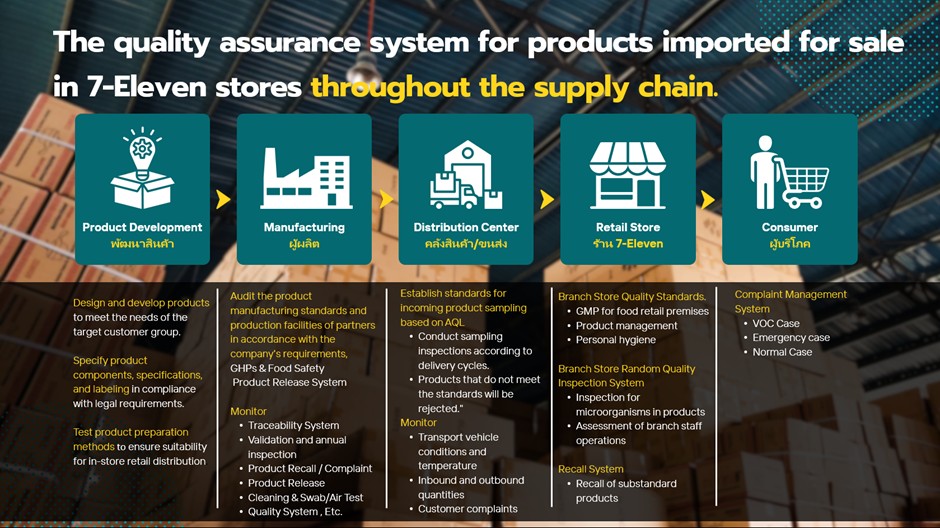
Product Recall Process
To ensure that consumers receive high-quality products and services, the Quality Assurance (QA) department collaborates with the Contact Center to thoroughly manage and investigate customer complaints. Once a complaint is received, all store branches are promptly notified, and each branch is required to report back to the QA department. Additionally, relevant departments conduct inspections according to the product type, and investigations are extended to involved suppliers. The process is illustrated in the diagram below.
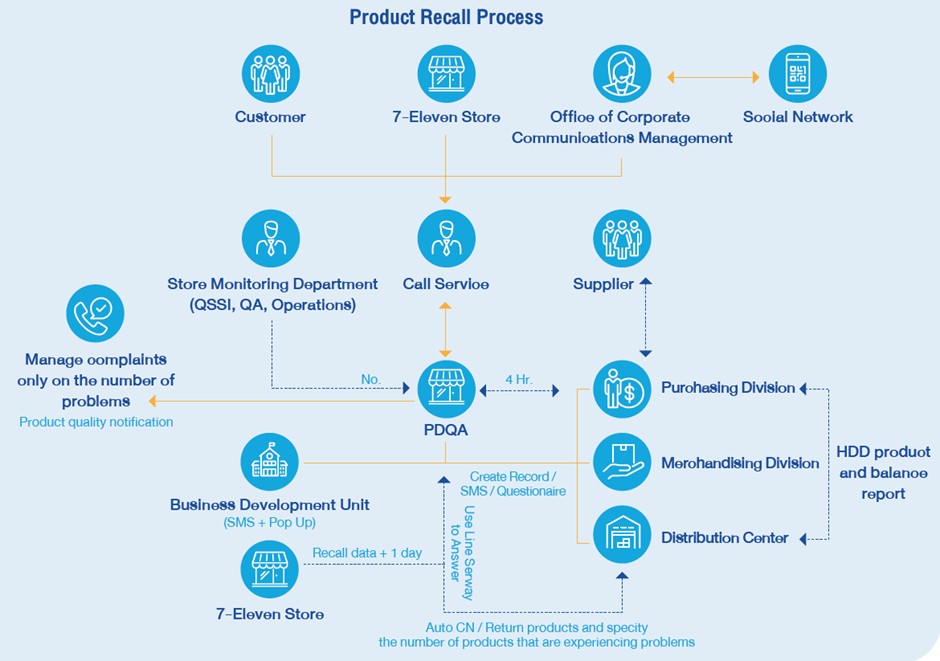
In 2024, product recalls were conducted for items that did not meet quality standards or failed to comply with relevant laws, regulations, or requirements, as follows:
| 2021 | 2022 | 2023 | 2024 | |
|---|---|---|---|---|
| Number of recalls issued (Cases) | ||||
| Quantity of products recalled (SKUs) | 305 | 164 | 104 | 173 |
Metric used to determine the compensation of executive members
The company cascaded the corporate KPIs to designated functions. A few KPIs are joint KPI for the performances that required cross-functional collaboration. The executives, who are responsible for the sales of the health products and new healthy product development, are Chief Merchandising Officer (CMO), Chief Research and Development Quality & Assurance (RDQA), and General Manager of Product Development Division. To achieve this target, it reflects in their 15%, 15%, and 10% weight in the respective executives’ performance evaluation (KPIs).

